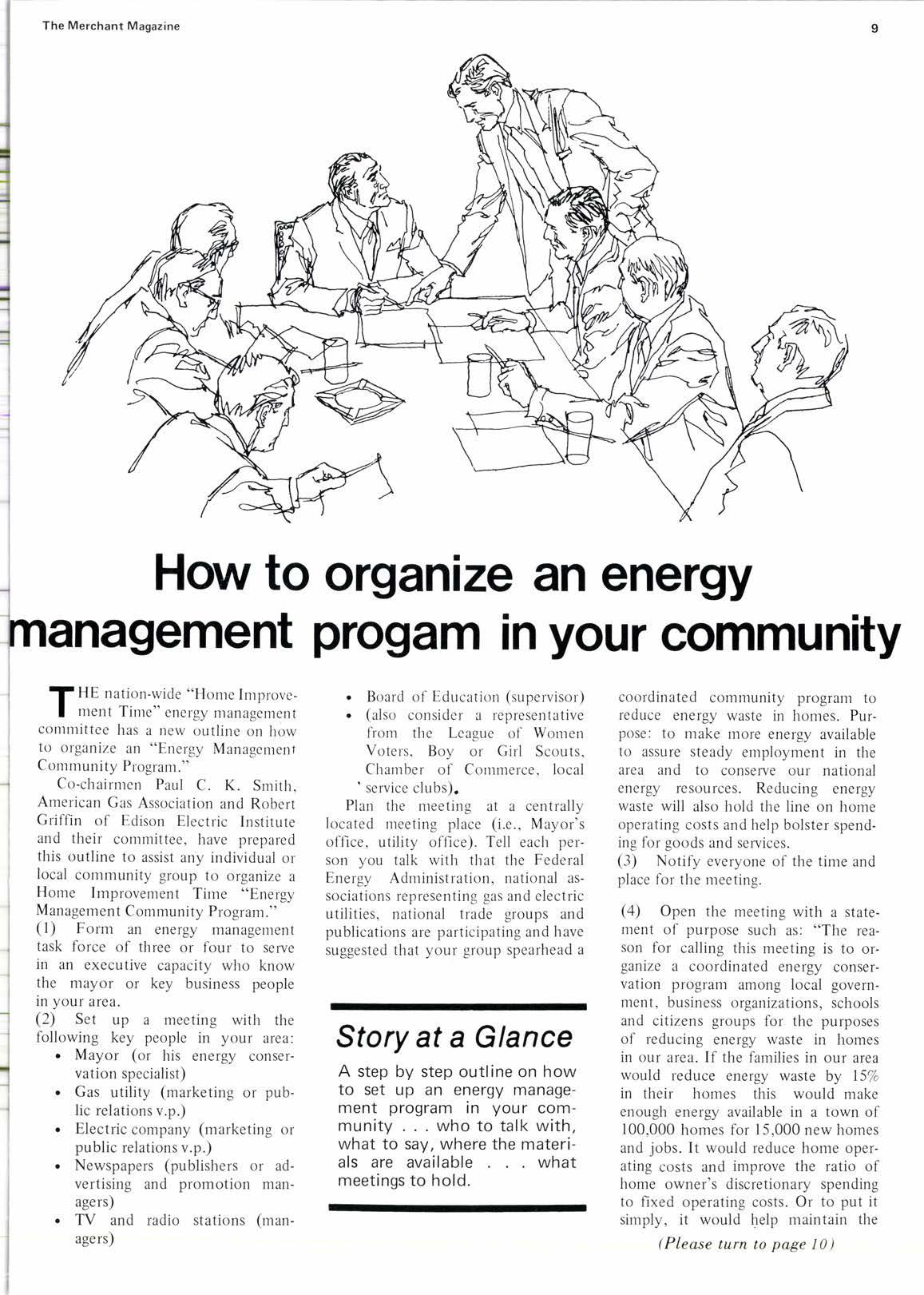
1 minute read
How to organize an energy gement progam in your community
T HE nation-wide "Honre ImproveI ment Tinte" energy management commitlee has a new outline on how to organize an "Energy Management Community Program."
Co-chairmen Paul C. K. Smith, American Gas Association and Robert Griffin of Edison Electric Institute and their committee, have prepared this outline to assist any individual or local community group to organize a Home Improvement Time "Energy Management Community Program."
(1) Form an energy management task force of three or four to serue in an executive capacity who know the mayor or key business people in your area.
(2) Set up a meeting with the following key people in your area:
. Mayor (or his energy conservation specialist)
Gas utility (marketing or public relations v.p.)
. Electric company (marketing or public relations v.p.)
. Newspapers (publishers or advertising and promotion managers)
. TV and radio stations (managers)
. Board of Education (supervisor)
. (also consider a representative from the League of Wornen Voters, Boy or Girl Scouts, Chamber of Commerce, local 'service clubs).
Plan the meeting at a centrally located rneeting place (i.e., Mayor's office, utility office). Tell each person you talk with that the Federal Energy Administration, national associations representing gas and electric utilities, national trade groups and publications are participating and have suggested that your group spearhead a
Story at a Glance
A step by step outline on how to set up an energy management program in your community . . who to talk with, what to say, where the materials are available what meetings to hold.
coordinated community program to reduce energy waste in homes. Purpose: to make more energy available to assure steady employment in the area and to conserve our national energy resources. Reducing energy waste will also hold the line on home operating costs and help bolster spending for goods and services.
(3) Notify everyone of the time and place for the meeting.
(4) Open the meeting with a statement of purpose such as: "The reason for calling this meeting is to organize a coordinated energy conservation program among local government, business organizations, schools and citizens groups for the purposes of reducing energy waste in homes in our area. If the families in our area would reduce energy waste by 15/o in their homes this would make enough energy available in a town of 100,000 homes for 15,000 new homes and jobs. It would reduce home operating costs and improve the ratio of home owner's discretionary spending to fixed operating costs. Or to put it simply, it would llelp maintain the
(Please turn to page 10)










